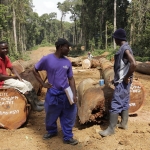BURMA: Time to Restore Human Rights and Democracy
Defeating apartheid would have been impossible without
corporations world-wide mounting economic pressure to help release South Africa
from the grip of a criminal regime. Archbishop Desmond Tutu, a leading voice in
that fight for freedom, declared, "Tough sanctions, not constructive engagement,
finally brought the release of Nelson Mandela and the dawn of a new era in my
country." In 1993, when Archbishop Tutu looked to the brutality of the junta
controlling Burma, he called it "the South Africa of the '90s." More than a
decade has passed, but Western corporations are still playing key roles in
boosting the Burmese economy that finances the junta's rule.
In the past few months, a 23-year-old refugee from Burma has
documented reports in horrifying detail that demand our attention. She described
an incident in which 10 Burmese soldiers stormed a farm and raped a young woman
in her hut for eight hours straight. The woman was seven months pregnant at the
time. Her husband was tied to a nearby tree and forced to hear the entire
assault. The soldiers then dragged him away, and the woman never saw him again.
A few days later she gave birth alone in the jungle.
The most shocking thing about this story is how commonplace it
has become in Burma. For years now Burmese soldiers have been attacking women
and even children in fields as they plant sugar cane, on riverbanks as they wash
clothes, along roadsides as they forage for wild vegetables. But these rapes are
not random crimes. They are part of the Burmese military's strategy to
intimidate and control ethnic groups.
The brave young woman who reported these stories was Charm Tong,
a refugee who works on the dangerous frontlines in the fight for the rights of
oppressed Burmese nationalities. For exposing military violence against women
and children and courageously advocating for their rights, Charm Tong received
the Reebok Human Rights Award last month.
As I listened to Charm Tong's stories, I felt reassured that
Reebok's 1996 decision to refuse to do business in Burma was the right one. But
her reports of these recent atrocities are evidence that not enough companies
have joined us in creating economic pressure to fight the systematic, deliberate
cruelty of the junta. We need many more corporations around the world to join us
in defending human rights in Burma.
Why focus on this regime? Despite a lack of enemies outside its
borders, Burma has one of the largest armies in Asia. It spends nearly half its
budget on the military. At the same time, the United Nations reports that Burma
-- once one of Asia's healthiest economies -- is now home to one of the world's
poorest populations. It has also become one of the worst providers of health
care, with one in 10 children dying before turning five.
But the junta's human-rights record provides an even more urgent
reason. The regime has renamed itself the State Peace and Development Council in
an attempt to mask its appalling record. That record includes the massacre of
thousands of civilians, the widespread use of slave labor, the routine torture
of 1,300 political prisoners, the forced removal of 1.5 million people from
their homelands, and, as now documented, rape as a weapon of war against ethnic
minority women and children.
It's impossible to conduct business in Burma without supporting
this regime. In fact, the junta's core funding derives from foreign investment
and trade. But foreign investment and aid yield little benefit to the nearly 50
million citizens who live under the military's ruthless campaign of
intimidation. Nobel Peace Laureate Aung San Suu Kyi, the democratically elected
leader now under house arrest, has pleaded with the world to apply economic
sanctions against Burma until democracy can free the country from the military's
brutal grip.
Over the years many foreign companies in a wide range of
industries have responded to those pleas by withdrawing their business. These
include adidas-Salomon, H&M, IKEA, Newmont and British Petroleum. But some
of the regime's principal business partners continue to be multinationals, many
based in Europe. Those lifelines must be cut to weaken the regime's hold on the
people of Burma.
Governments can, and should, do much more to enact humane
responses to this crisis. But the experience of apartheid demonstrates a
powerful role for businesses to play. I urge corporations around the world to
work together once more, this time to help restore human rights and democracy to
Burma.
Mr. Fireman is chairman and CEO of Reebok International
Ltd. The 16th Reebok Human Rights Awards were presented on May 11 in Los
Angeles.
- 181 Food and Agriculture
- 184 Labor



